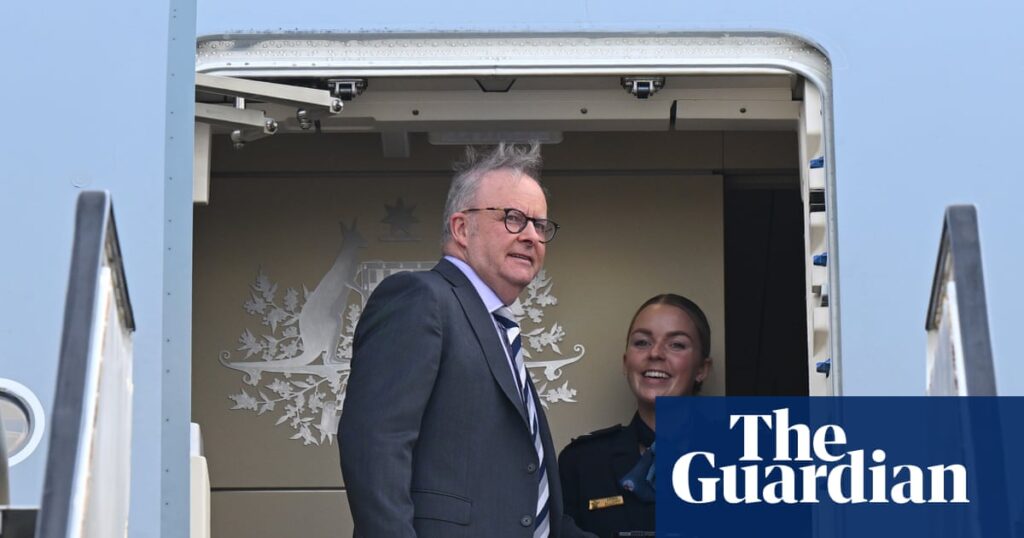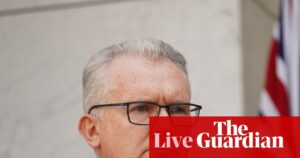
Anthony Albanese, Australia’s Prime Minister, is currently navigating a busy summit season, having visited the United States twice and recently returned from trips to Malaysia and South Korea. In three weeks, he will head to South Africa for the G20 summit. However, diplomatic and business leaders are questioning his absence from this year’s global climate summit, Cop30, which begins on November 10 in Belém, Brazil. This absence is particularly notable as Australia is bidding to co-host a major climate conference in Adelaide in November 2026.
The Cop30 summit is a critical gathering of international leaders, including Britain’s Keir Starmer, France’s Emmanuel Macron, Germany’s Friedrich Merz, and Palau’s Surangel Whipps Jr., all hosted by Brazilian President Lula de Silva. They aim to address the lagging efforts to meet the 2015 Paris Agreement goals. Despite the significance of the event, Albanese has not attended a UN climate conference since becoming Prime Minister and has indicated he will not join the more than 50 leaders in Brazil.
Australia’s Bid for Cop31 Hosting Rights
The hosting rights for the Cop31 summit remain unresolved, with a standoff between an Australia-Pacific joint bid and a Turkish proposal to hold the conference in Antalya. Observers argue that Albanese’s presence in Brazil could influence the decision, which must be finalized this month. Jennifer Morgan, Germany’s former climate envoy, emphasized that Albanese’s attendance would signal Australia’s serious commitment to hosting Cop31, especially as several leaders from the decision-making group, Western Europe and Other States, plan to attend.
“It is common practice that if a country wishes to host a [climate conference] that its leader attends and continues to make the case,” Morgan stated. “It would certainly strengthen the Australian-Pacific bid for him to attend.”
Innes Willox, CEO of the Australian Industry Group, acknowledged the challenges of hosting Cop but highlighted the potential benefits, such as securing a pivotal role in global decisions on the economy, emissions, and energy. He stated, “If we are deadly serious about hosting the Cop next year, his presence in Brazil next month would be a clear sign of intent.”
Diplomatic Efforts and Strategic Implications
Surangel Whipps Jr., an advocate for the Australia-Pacific bid, recently told the ABC that it was “crunch time” for deciding Cop31 hosting rights, urging Albanese to attend the summit to “close the deal.” The decision-making process at the UN is consensus-based, and if no resolution is reached in Belém, hosting responsibilities could default to Germany, home to the UN climate headquarters in Bonn. Germany, however, has expressed reluctance to host the event.
Albanese has attempted to resolve the stalemate by proposing a compromise, suggesting Turkey host preliminary events while the main conference occurs in Adelaide. Turkey, in turn, proposed a shared presidency and management of the summit. Despite these efforts, diplomatic sources note that Turkey plans to send a senior representative—Vice-President Cevdet Yılmaz—to Brazil, while Australia will be represented by Assistant Minister for Climate Change, Josh Wilson.
Future Prospects and National Interests
Chris Bowen, Australia’s climate change minister and a key driver of the Cop31 bid, will attend the ministerial segment of the talks starting November 17. The absence of Albanese at Cop30 raises questions about Australia’s commitment to its climate goals and its aspirations to play a leading role in global climate policy.
Jennifer Morgan remarked on the importance of leadership presence at such events, particularly in the current climate landscape. “It’s 10 years after Paris. It’s a moment for a shoulder-to-shoulder effort,” she said, emphasizing the strategic importance for Australia to be present at the highest level, given its climate targets and renewable energy goals.
The coming weeks will be crucial for Australia as it seeks to solidify its position on the global climate stage. The outcome of the Cop31 hosting bid could significantly influence Australia’s role in future climate negotiations and its ability to shape international climate policy.





